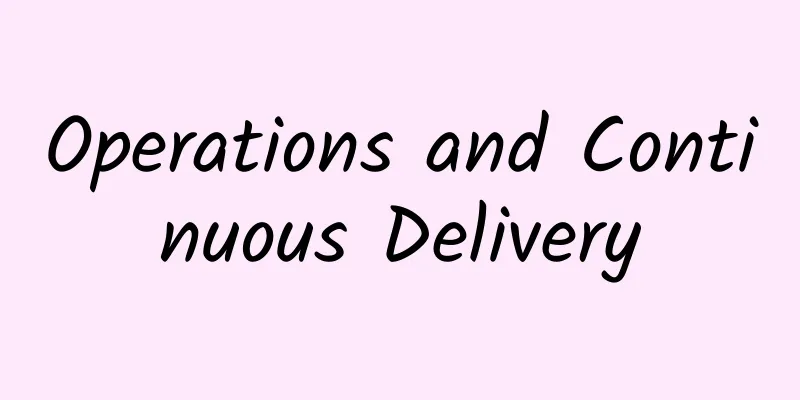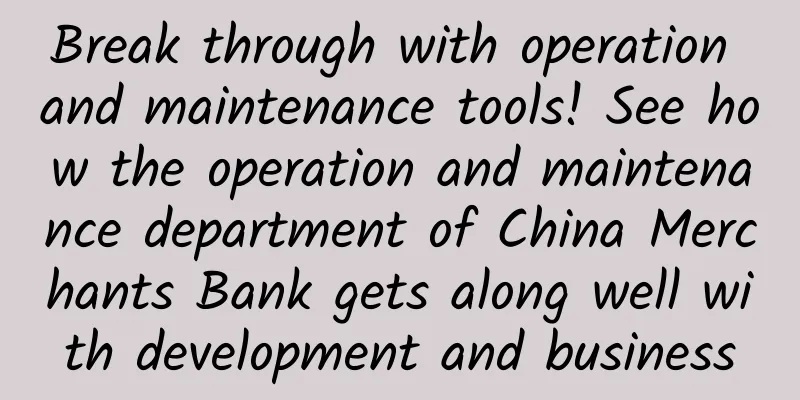Operations and Continuous Delivery

|
Operations and Continuous Delivery In the era of Internet product development, product iterations are becoming more and more frequent, and the stage from completion of functional development to successful deployment is called the "last mile" of software development. The level of engineering skills of a team is directly reflected in the code deployment. When I meet people from other companies, they like to ask how you deploy code, which is very eye-opening. It is hard to believe that many (large-scale) companies still manually SSH to a dozen or twenty machines to git pull, manually restart the server, and deploy code for several hours - so primitive, they deserve to work overtime :) Continuous deployment is the rapid delivery of high-quality products through automated build, test, and deployment cycles. To some extent, it represents the degree of engineering of a development team. After all, the labor cost of a fast-running Internet company is higher than that of machines. Investing in machines to optimize development processes also improves human efficiency and maximizes engineering productivity. Key points for successful continuous deployment An automated system for continuous integration and continuous deployment is not that simple. If you do not use other CI services, the development workload is no different from that of a standard large-scale Internet business system. If you have no experience in continuous deployment, you should pay attention to the following in order to successfully carry out continuous deployment: Adequate and extensive automated test coverage; The test feedback time should be as short as possible; Automation of the deployment process; The deployment process must ensure data security; Deploy as early as possible under the premise of stability; Comprehensive risk mitigation measures; Deploy the same product to different environments Continuous Delivery Capability Maturity Model The Operational View of Continuous Delivery 1. From continuous receipt to continuous delivery, the core transformation of operation and maintenance 2. Operation and maintenance have mastered the most important entry point for continuous delivery: CMDB and continuous delivery 3. Final evaluation of delivery: quality, efficiency, and cost 4. Continuous delivery is the core practice of breaking down departmental walls 5. The essence of continuous delivery: standardization + platformization + service and user-oriented value 6. Global optimization based on the delivery chain (Dev/Test/Ops), not local optimization (Ops) 7. The problem of operation and maintenance is not just an operation and maintenance problem, it is an IT problem 8. Operations and maintenance are closest to users. You represent users and have the greatest driving force. 9. Cross-border business is born |
>>: ITU releases draft specification, a big step forward in 5G standardization
Recommend
Liu Liehong: To get rich, we must not only build roads, but also build information highways
[[398027]] 2021-05-08 09:07Focus, broadcast on th...
Four ways to ensure service availability in the face of traffic bursts
Preface Have you ever had this experience? A larg...
5G is coming, do I need to change my SIM card?
2019 is the first year of 5G. With the issuance o...
What is a patch panel and what is it used for?
Patch panels are important network components tha...
Docker novice to practical use: container data volumes, organized clearly
[[419549]] Preface The previous article demonstra...
V5.NET New Year 20% off, Hong Kong E5 dedicated server monthly payment starts from HK$440
V5.NET is a business that provides independent se...
RongCloud's Yang Pan: Empowering Enterprises to Communicate
[51CTO.com original article] As an indispensable ...
Fiber pre-entry: A new strategy to accelerate FTTH deployment
With the progress and development of human societ...
South Korean telecom operator SK Telecom's 5G users have reached 8.65 million
[[434445]] According to foreign media reports, af...
What does the TTL value returned by the Ping command mean and what does it do?
The ping command is used to test the connection t...
A world first! Traffic lights are used as 5G base stations: Japan has come up with a wave of cool operations
The small signal coverage range of 5G base statio...
VirMach: $7.5/year KVM-384MB/10GB/500GB/multiple data centers
The tribe has not shared information about VirMac...
Why TCP/IP is a threat to the Internet of Things
This article is reproduced from the WeChat public...
How does DH+ compare to Ethernet?
When it comes to industrial communication protoco...
Wikipedia has adopted HTTPS by default and is now available in most countries…
One of the benefits of the Internet age is that w...









![[Black Friday] HostDare: $9.89/year-768MB/15G NVMe/1TB/Los Angeles Data Center](/upload/images/67cabcf183290.webp)